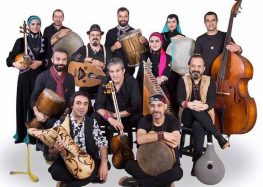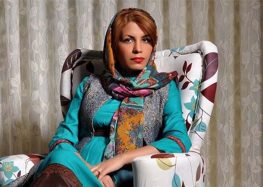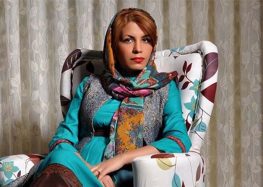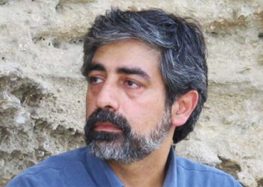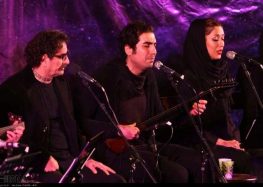Concerts of Popular Iranian Musicians Canceled Due to Pressure from Religious Conservatives
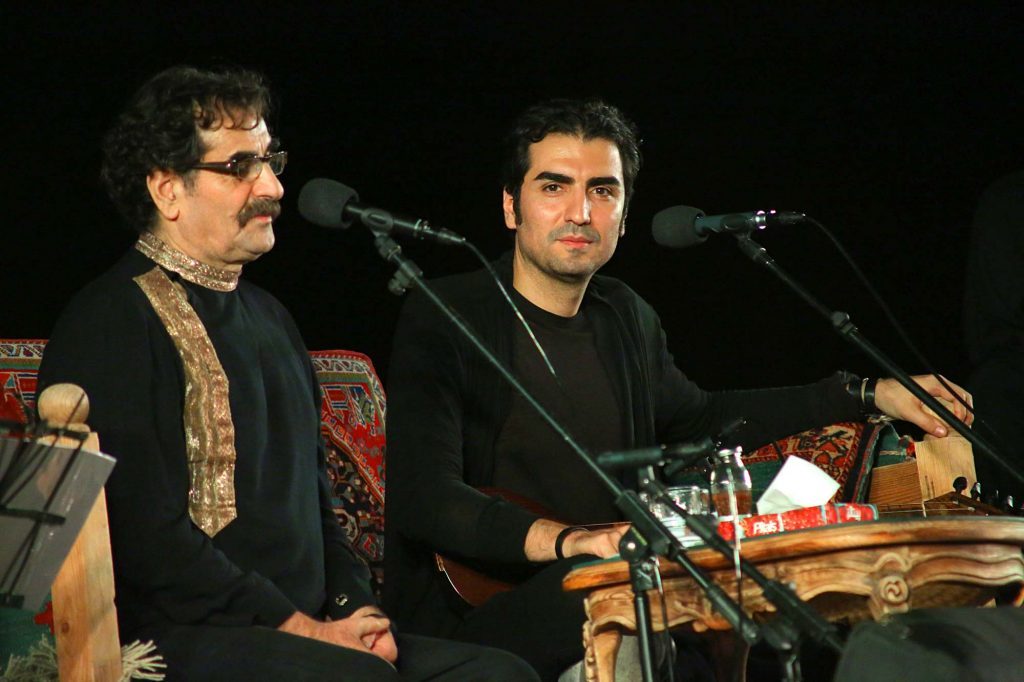
Two of Iran’s top musicians have been prevented from performing in the city of Neyshabour and other locations in northeastern Khorasan Razavi Province by the local prosecutor.
The Persian classical music master Shahram Nazeri, who was licensed by the Ministry of Culture and Islamic Guidance, was set to perform at an event honoring Ferdowsi National Day in Neyshabour near Ferdowsi’s (a famous Iranian poet) birthplace on May 21, 2016, but his concert was suddenly canceled without explanation.
The other tour stops of Nazeri’s “Nagofteh-ha” (Unspoken) concert scheduled throughout the province, including the city of Shandiz, have also been scrapped.
“Neyshabour’s doors are now also closed to concert shows,” said Nazeri on May 15, 2016, according to the Iran daily newspaper. “Everything was ready for our concert, but then they didn’t allow us to do it.”
Concerts by Kayvan Kalhor, an internationally renowned master kamancheh (traditional string instrument) player, were planned in Neyshabour on May 10 and 11, but were also canceled by the local prosecutor, who cited “complaints from the families of martyrs.”
“We had all the necessary permits from the provincial governor’s office and the Ministry of [Culture and Islamic] Guidance,” Kalhor’s unnamed concert manager told the semi-official Iranian Student News Agency (ISNA) on May 10.
Kalhor, whose previous concerts have also been banned or disrupted by religious conservatives, warned last year that he would not perform in Iran again.
“These concerts will not be rescheduled,” he told the Moosighiye Ma website in June 2015. “So long as Iran’s culture and arts are hostages in the ransom-taking and power struggles of political factions, and no clear guidelines are defined and enforced for such activities, I will refrain from doing anything in Iran.”
Kalhor had a change of heart in 2016 and planned a nation-wide tour with his band, but the forced cancelation of his performance in Neyshabour has put the rest of his tour dates in doubt.
Iran’s House of Music, an independent association of musicians, has written a letter to Judiciary Chief Sadegh Amoli Larijani protesting the ongoing disruption of sanctioned musical performances.
“These are difficult days for Iran’s music community,” said the group in its May 12, 2016 letter. “Sabotage and assaults on legal cultural programs and concerts… especially in the presence of police and security forces… have made life difficult in this precious artistic field.”
“The spread of political battles and scandals into the immaculate arena of art has only brought bad news from a different corner of the country on a daily basis about the cancelation of a concert or permit, as well as assaults and insults against musicians on stage, particularly honorable women,” continued the letter.
Referring to the cancelation of Kayhan Kalhor’s concert in Neyshabour by the local prosecutor, the House of Music said: “It is surprising and depressing that a senior judicial official, singlehandedly and without any legal justification, wages war on the law and invalidates official permits issued by the relevant authorities. Then, when he faces strong public protests, he justifies his action by hiding behind the proud families of martyrs.”
The letter also condemned a ban on female musicians appearing on stage by referencing the Shahram Nazeri band.
“We saw this disgraceful behavior [towards female musicians] when we witnessed the pianist Harir Shariatzadeh, the wife of [singer] Salar Aghili, being pulled down from the stage during a performance.”
No Relief With Rouhani’s Election
Since 2013, when President Hassan Rouhani was voted into office promising a more open society, numerous state-sanctioned musicians, including the popular musical artists Alireza Ghorbani and Sirvan Khosravi, have seen their concerts canceled at the last moment.
Religious conservatives have justified their attacks on musicians by quoting vague statements and decrees by senior religious leaders. Iran’s supreme leader, Ali Khamenei, has himself often warned about the alleged dangers of music, saying it will “lead people away from the path of God.”
Grand Ayatollah Hossein Nouri Hamadani and Grand Ayatollah Nasser Makarem Shirazi, both senior theologians, have also warned the Ministry of Islamic Culture and Islamic Guidance not to waver on Iran’s ban on solo female singers.
Cancellations of concerts featuring female vocalists and musicians have been particularly frequent since Rouhani’s election.

